Keir Starmer is on a collision course with Commonwealth leaders today as they demand movement on slavery reparations of up to £18trillion.
The PM has been warned it is ‘only a matter of time’ before Britain bow to pressure as nations push for a clear statement at a summit in Samoa.
Sir Keir is attending the gathering of 56 countries along with the King, with Downing Street adamant that reparations are not on the agenda and will not be paid.
The premier, who was at a welcome banquet today, has said he prefers to work on ‘future facing challenges’ rather than ‘spend a lot of time on the past’.
However, the issue could be forced into the communique due to be discussed by leaders.
Asked about Sir Keir’s position on the matter, Bahamas foreign minister Frederick Mitchell told BBC Radio 4’s Today programme: ‘It’s only a matter of time before his position changes, I am confident of it.’
He suggested the Labour Party was more likely to cede ground than the Tories had been.
Mr Mitchell said: ‘And this, we thought was something that the Conservative Party in the UK would be the progenitor of, and that Labour would certainly change its position on this.’
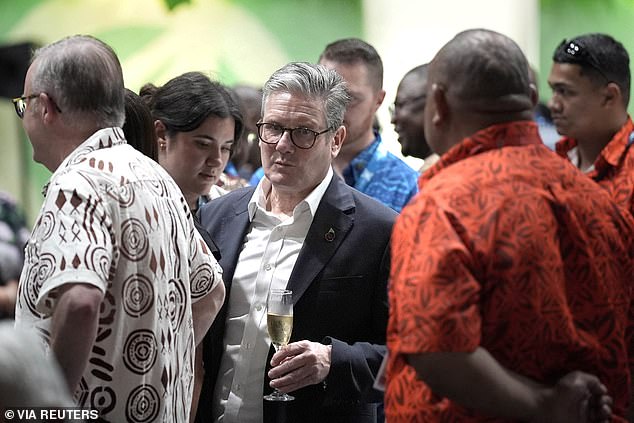
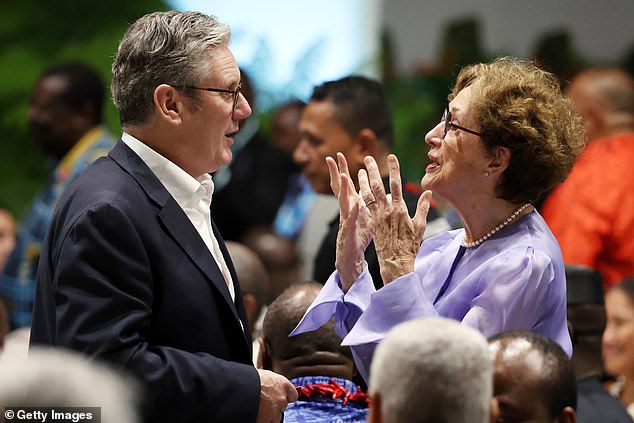
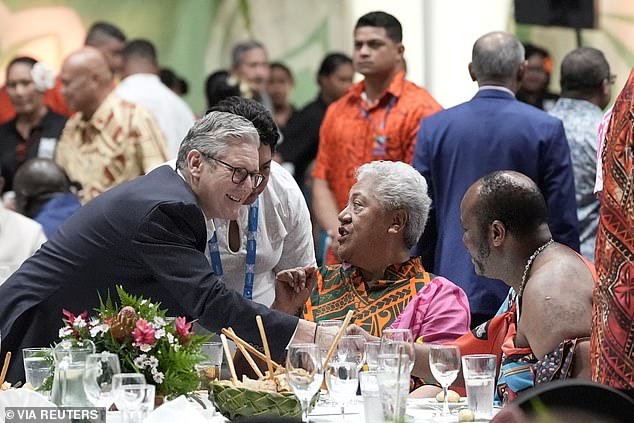
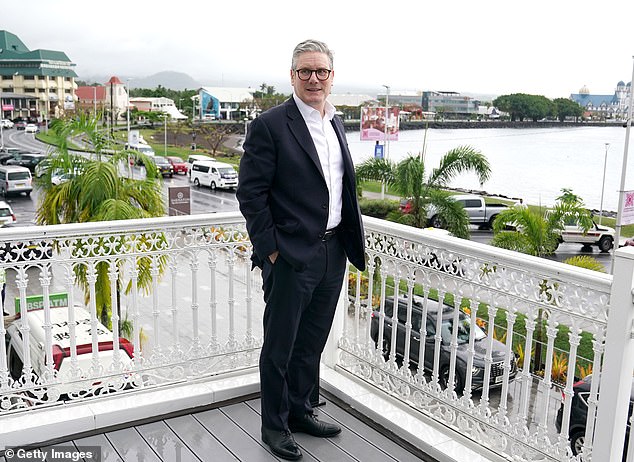
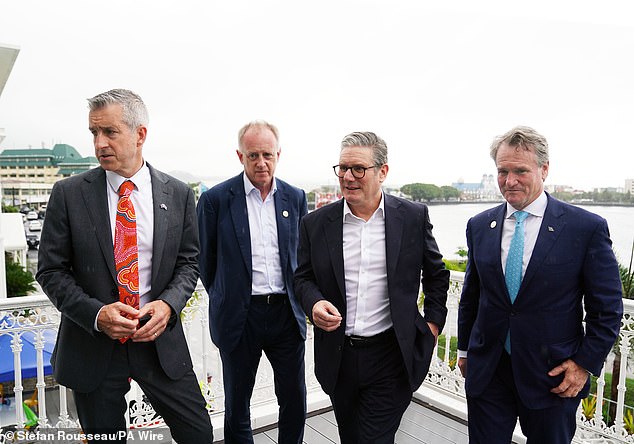
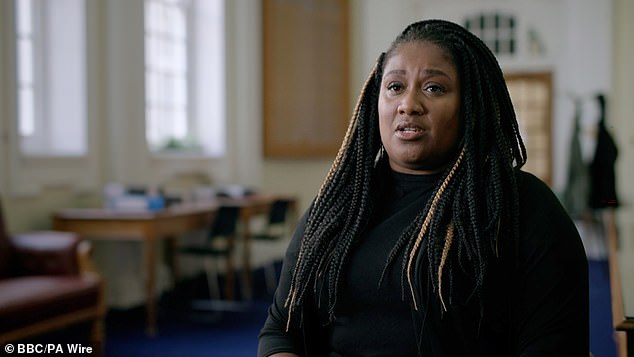
Sir Keir is also under pressure from his own MPs – with one warning that it was ‘extremely disrespectful’ to other Commonwealth nations not to discuss the issue.
All three candidates vying for the top job at the summit have called for reparations to countries that were affected by slavery and colonialism.
Caricom, a group of 15 Caribbean nations, has also called for talks to explore such measures, and representatives from the region are expected to raise the issue in Samoa.
Diplomatic sources said officials are working hard to negotiate an agreement to allow further research and a ‘meaningful conversation’.
According to the BBC, a draft communique states: ‘Heads, noting calls for discussions on reparatory justice with regard to the transatlantic trade in enslaved Africans and chattel enslavement… agreed that the time has come for a meaningful, truthful and respectful conversation towards forging a common future based on equity.’
It adds the heads of government would play ‘an active role in bringing about such inclusive conversations addressing these harms’ and that they agreed ‘to prioritise and facilitate further and additional research on the transatlantic trade in enslaved Africans and chattel slavery that encourages and supports the conversations and informs a way forward’.
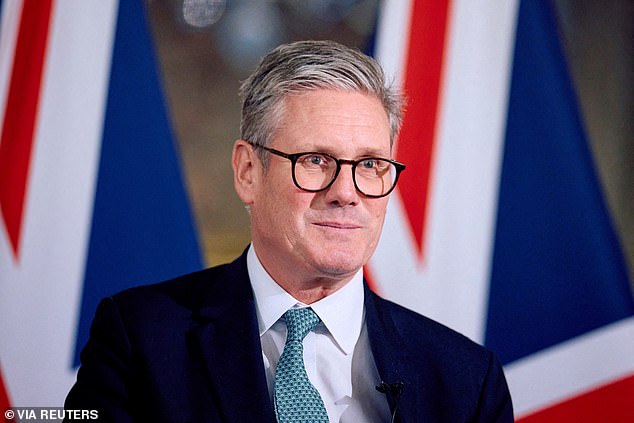
It also condemned the ‘abhorrent trade, chattel enslavement, the debilitaiton and dispossession of indigenous people’.
Mr Mitchell told the BBC: ‘The single line that they’re arguing about is reparatory justice or a declaration on reparatory justice.
‘Seems innocuous enough to us, because really what should happen is there should be an apology and a commitment to reparations.’
Mr Mitchell said that unless an agreement is reached overnight, leaders could ‘have to be a part of getting this settled’.
He explained: ‘The way the paragraphs are structured […] at the moment, is to simply call for this discussion to take place on reparatory justice, and not even that concession can be made.
‘So it’s going upstairs at the moment, unless something happens overnight dramatically, the leaders themselves are going to have to be a part of getting this settled.’
Diplomats reportedly believe the addressing of the issue will mean it is top of the agenda at the next Commonwealth summit in two years.
It could leave Britain facing calls tp pay up to £18trn to its Commonwealth friends, a report by the University of West Indies said.
But Downing Street has insisted the subject is ‘not on the agenda’ for the event and ‘we won’t be offering an apology’.
Sir Keir told reporters as he travelled to Samoa last night that he was focused on ‘facing forward’ – and suggested he wanted to help Commonwealth countries with climate change, rather than reparations.
The PM said: ‘I’ve talked to a lot of our Commonwealth colleagues in the Commonwealth family and they’re facing real challenges on things like climate in the here and now.
‘And in all the conversations I’ve had with them, what they’re most interested in is can we help them working with, for example, international institutions, financial institutions on the sorts of packages they need right now relation to the challenges they’re facing right now.
‘That’s where I’m going to put my focus rather than what will end up being very, very long endless discussions about reparations on the past. This is about stance really, looking forward rather than looking backwards.’
Sir Keir said slavery was ‘abhorrent’, but that he would ‘rather roll up my sleeves and work with them on the current future-facing challenges than spend a lot of time on the past’.
Estimates for the likely reparations bill for British involvement in slavery in 14 countries range from £206billion to £18trillion.
Labour MP Bell Ribeiro-Addy, who chairs the All-Party Parliamentary Group (APPG) for Afrikan [correct spelling] Reparations, said ‘the UK still has that kind of veto reeks of the colonialism that people are still seeking some sort of resolution to’.
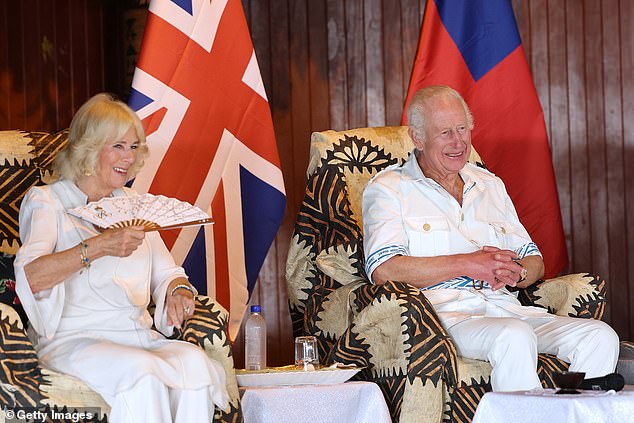

‘I don’t believe we should be in that position and it’s extremely disrespectful to those countries,’ she told BBC Radio 4’s Today programme.
‘We don’t see them as equals if we tell them what should be discussed and what shouldn’t be discussed.’
Last night it also emerged that Bahamas Prime Minister Philip Davis lectured a senior minister on the need for ‘reparatory justice’ for the Caribbean.
Foreign Office Minister Baroness Chapman was told that Britain must pay for ‘the enduring impact of centuries of exploitation’.
Addressing a welcome event for the peer in the capital, Nassau, he said: ‘Another issue that lies close to both our hearts is reparatory justice.
‘It’s not an easy conversation, but it’s an important one. Our history is deeply intertwined and with that comes a responsibility to face the past with honesty. The time has come to have real dialogue about how we address these historical wrongs.
‘The call for repreparations is not simply about financial compensation.
‘As Caribbean nations, we stand united in our demand for justice for generations who came before us and those of us who are still living with that brutal history.’
It is understood that Baroness Chapman did not discuss reparations during her visit, however, which was focused on formally ratifying trade deals between the UK and the Bahamas.
The peer also handed over 10,000 pages of historic documents pertaining to Bahamian Independence that had been stored in the National Archives.
While a majority of Commonwealth leaders are expected to attend the Commonwealth summit, India’s Narendra Modi and South Africa’s Cyril Ramaphosa will be noticeably absent.
Instead, they have chosen to attend the BRICS summit in Russia at the invitation of president Vladimir Putin, where the leaders of Brazil, China and several other prominent developing nations will also be present.
Asked whether he was sad India and South Africa were not attending the Commonwealth meeting, Sir Keir told reporters it was ‘a matter for them as to where they attend’.
A UK government spokesperson told the BBC they would not comment on the leak, but added: ‘Reparations are not on the agenda for the Commonwealth Heads of Government meeting. The government’s position has not changed – we do not pay reparations.
‘We are focused on using the summit at [the Commonwealth Heads of Government Meeting] to discuss the shared opportunities which we can unlock across the Commonwealth – including securing more economic growth.’



